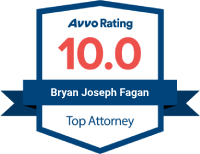Expert Trust & Estate Planning in Boerne | Bryan Fagan Law OfficeMastering Trust Matters with Boerne’s Finest: Opt for the Law Office of Bryan Fagan
Your Guiding Light in Boerne
In the intricate landscape of estate planning, trusts serve as pillars, ensuring the seamless transition of assets, safeguarding beneficiaries, and upholding your legacy. Boerne residents can entrust their trust matters to the Law Office of Bryan Fagan—a stalwart ally offering unmatched expertise, personalized counsel, and steadfast support to navigate the complexities of trust-related issues.
Why Rely on Us for Your Trust Needs?
- In-Depth Trust Expertise: Our legal team at the Law Office of Bryan Fagan possesses profound knowledge in trust law, staying abreast of the latest legal intricacies. This expertise enables us to deliver effective, cutting-edge solutions tailored to the distinctive needs of Boerne residents.
- Holistic Trust Approach: Trusts encompass multifaceted dimensions, from intricate legalities to addressing familial dynamics. Our approach is holistic, meticulously attending to every detail to ensure a seamless and efficient trust administration process.
- Personalized Guidance: Acknowledging the unique nature of each trust case, our attorneys provide personalized guidance, crafted around your specific circumstances, goals, and family dynamics. We understand the importance of tailoring our approach to meet the individual needs of Boerne residents.
- Transparent Communication: The journey through trust matters can be overwhelming. We prioritize transparent communication, ensuring you are kept informed at every stage. This empowers you with a clear understanding of the process, enabling you to make well-informed decisions.
- Conflict Resolution Expertise: In the face of disputes or challenges within the trust administration, our experienced team excels at navigating complexities. We strive for amicable resolutions that protect your interests and foster harmonious relationships.

Our Trust Services
Comprehensive Support for Your Peace of Mind
- Trust Administration: Navigate the entire trust administration process with our guidance, ensuring the orderly distribution of assets in alignment with the grantor’s wishes and applicable laws.
- Estate Settlement: Our team handles all aspects of estate settlement, simplifying the process for Boerne residents during a challenging time.
- Trust Litigation: In the event of disputes or contested matters, our skilled attorneys provide robust representation, advocating for your interests with diligence and expertise.
- Trust Modification and Termination: Should circumstances necessitate changes, we assist in modifying or terminating trusts to align with evolving needs.
- Specialized Trusts: Extend your reach to specialized trusts, addressing unique circumstances such as special needs, charitable objectives, or asset protection.
Contact Us for Trust Assistance
Your Journey Starts with a Consultation
If you’re contending with trust matters in Boerne or have queries about trust administration, reach out to the Law Office of Bryan Fagan at (210) 404-4911 for a consultation. Our team is dedicated to providing exceptional trust services, ensuring your journey through this process is guided by experienced professionals who genuinely care about your well-being. Let the Law Office of Bryan Fagan be your trusted ally in trust matters, bringing expertise, compassion, and unwavering support to your side.
Choose the Law Office of Bryan Fagan for trust assistance. Your peace of mind matters to us.



